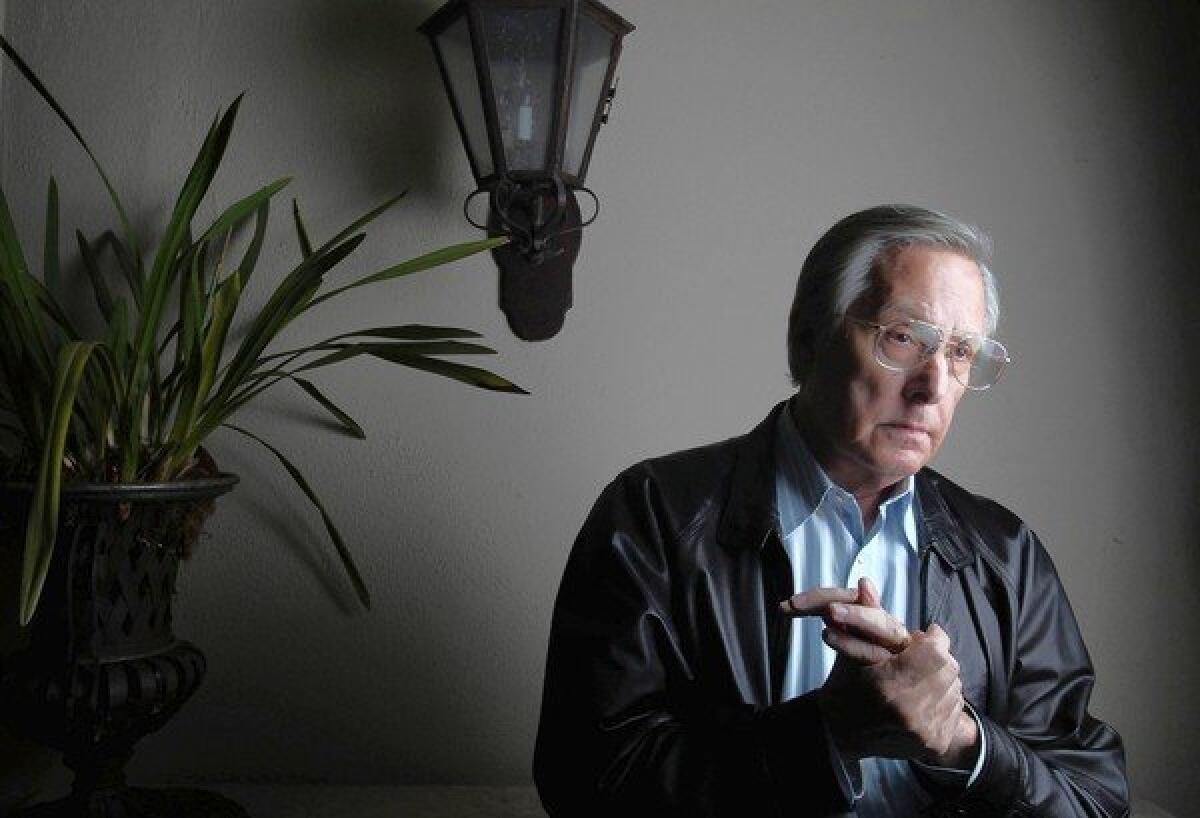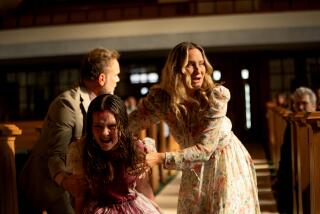William Friedkin celebrates a Golden Lion, restored ‘Sorcerer’

Thursday is going to be a big day for William Friedkin. It will be his 78th birthday (“No gifts, please, I’ll just give you my address,” he jokes) as well as the day his memoir, “The Friedkin Connection,” will be published in Italian.
And, oh yes, it’s also the day he receives the Golden Lion for lifetime achievement at the Venice Film Festival.
“That was very unexpected, I must say, and I’ll tell you what makes it even more so,” the energetic director of “The Exorcist” and “The French Connection” said a few days ago, taking some time to talk at a moment when other folks might have been busy packing for the trip.
PHOTOS: ‘The Exorcist’ on stage
“When Venice started the lifetime achievement award in 1970, the first guy to win it was Orson Welles, whose ‘Citizen Kane’ made me want to direct movies.
“And when the festival started up again in the late 1940s after World War II, the first guy to win the Golden Lion was Henri-Georges Clouzot, whose ‘[The] Wages of Fear’ inspired me to do ‘Sorcerer.’ It’s all kind of a circle and I’m kind of overwhelmed to get the award.”
“Sorcerer,” Friedkin’s 1977 remake of the Clouzot original starring Roy Scheider in a story of tough guys driving truckloads of high explosives over hellacious South American roads, is very much on Friedkin’s mind these days. In fact, when the festival asked him what films he wanted them to run as part of the tribute, “I asked them to run only that.”
Though Friedkin continues to be an active director with a career spanning half a century (a 40th anniversary Blu-ray release of the extended director’s cut of “The Exorcist” is due out in October), he says, “I have a great fondness for ‘Sorcerer,’ more than any other film. It’s the film I hope to be remembered for.”
So the question becomes, why?
PHOTOS: Billion-dollar movie club
“I don’t make that many films. I haven’t made 20 features in 50 years,” the director explains. “‘The Exorcist’ took me three years, ‘The French Connection’ more than three years; they take me a long time. Every one of the films that I made, even the ones that haven’t worked, are films that I had to envision, that I had to see in my mind’s eye. And ‘Sorcerer’ is the film that came closest to my vision of what I wanted to make.”
So it’s not surprising to learn that the director is delighted that it’s a spanking new digital version of “Sorcerer” that will screen at Venice.
“The film was basically lost for 36 years; its restoration is like Lazarus,” he reports. “They remixed the soundtrack, color timed the film; it appears as if it was just made. None of the essentials — the clothes, the hair — are dated in any way. It looks the way it looked to me when I looked through the lens of the camera.”
Though a lawsuit by Friedkin against the film’s co-producers Universal and Paramount helped get the ball rolling, the director says that “the thing that saved this film and got it restored is a kind of massive Internet campaign. People wrote about it, blogged about it in very serious numbers, in the thousands. It achieved a reputation over the past 30 years. All these articles appeared about it, and nothing was available but an old version of the VHS” — a situation that is about to change in a major way.
“Here’s the plan,” Friedkin says with his customary briskness. “Paramount is going to re-release it theatrically; it’s already been requested all over the world. Warner Bros., which financed the restoration, has got home video and streaming, while Universal has television.”
As for the great city of Los Angeles, the director adds, “We’re going to allow Cinefamily to have a two-week run of it in the spring of next year.”
Given the Venice honor and all the apparent interest today, the obvious question is, why didn’t people respond to “Sorcerer” this way when it first came out? Uncharacteristically, Friedkin is momentarily stumped — “I’m going to be very honest with you: I don’t know” — before coming up with a whole range of possible reasons.
“The only known actor, who was not a major star, was Roy Scheider; there were some subtitles, which were not used a lot in American movies at the time; and people didn’t really understand the significance of the title [the name of one of the trucks] — they thought it was a film similar to ‘The Exorcist,’” Friedkin suggests before moving on to what he sees as the main difficulty.
“The film came out in 1977, a week after ‘Star Wars,’ a film that became the template for the future of American film, which it basically still is,” the director says. “‘Star Wars’ went into the Chinese [theater in Hollywood], but they had to take it out after a week because ‘Sorcerer’ was booked. Within weeks, ‘Sorcerer’ was kicked out and ‘Star Wars’ went back in. That film changed American film in a way few other films have.”
As a director, Friedkin says, “I’m not interested in superhero films, it never really was for me. In ‘Sorcerer,’ the four guys who are the leads aren’t superheroes, they’re all flawed men desperately clinging to life.”
“I believe there is good and evil in everyone, and that’s true for all the characters in all my films, including ‘The French Connection’ and ‘The Exorcist,’” the director says, summing up. “I believe that is the human condition.”
More to Read
Only good movies
Get the Indie Focus newsletter, Mark Olsen's weekly guide to the world of cinema.
You may occasionally receive promotional content from the Los Angeles Times.










